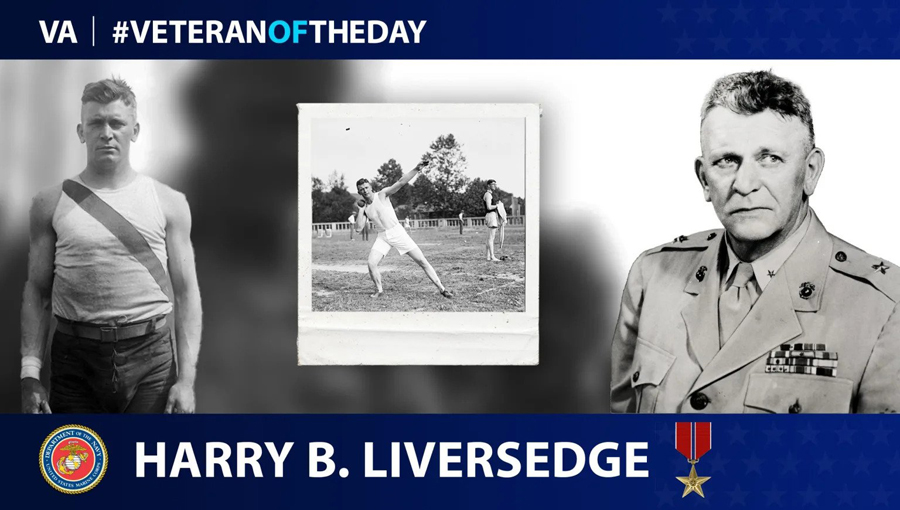
Harry Liversedge was born in September 1894 in Volcano, Calif. He enrolled in the University of California, Berkeley, and, while attending school, participated and won third place in the 1920 Olympic shot put competition. He joined the Marines in 1917, and he was commissioned a year later.
Early in his career, Liversedge served across multiple locations, first in France in 1919, when he was also promoted to first lieutenant. Back in the United States, he briefly served in Quantico, Va., before again deploying abroad to join the Second Provisional Marine Brigade in Santo Domingo, Dominican Republic. After a brief return to Virginia and Maryland, Liversedge then served as an aide to the American high commissioner in Haiti.
A proven athlete, Liversedge participated in his second Olympics competition in 1924 while serving at the Naval Academy. He then served in Virginia and California before deploying to China. His athleticism once again aided him when he was tasked with providing boxing training with the Third Brigade in Tienstin. In Shanghai, he also participated in the International Track and Field Meets, a major track and field competition.
After his service in China, Liversedge returned to Virginia. He then relocated to California for the second time, earning a promotion to the rank of captain and serving as an aide to the commanding general at the Department of the Pacific Headquarters. Liversidge then for the first time served aboard a ship in 1933 when he was assigned to USS California. He continued serving domestically for the next several years, moving between Philadelphia, Penn., Quantico, Va., Spokane, Wash., and San Diego, Calif.
From its beginning, Liversedge played a significant role in the Marine Corps during World War II. He started by commanding the Second Battalion, Eighth Marines, in American Samoa in January 1942. He continued commanding his fellow servicemen for the remainder of the war, leading the Third Marine Raider Battalion beginning 1942 and the First Marine Raider Regiment beginning March 1943. In that role, he led his unit against Japanese forces and subsequently earned a Navy Cross. Next, he commanded the 28th Marines and led his unit in the Iwo Jima Campaign, commanding his troops for the entire 36-day campaign, which ended with one of the most iconic images of the war.
At the end of the war, Liversedge served briefly in Japan before finally returning home, where he remained for the rest of his career. He served in California as director of the Twelfth Marine Reserve District, as a district marine officer for the Twelfth Naval District and as assistant commander for the 1st Marine Division in Camp Pendleton. In 1948, he earned a promotion to brigadier general, which was his final rank, and continued serving in high-level positions in Guam and California. In 1950, he assumed his final position as director of the Marine Corps Reserve.
Liversedge died in November 1951 at the age of 57.
We honor his service.









